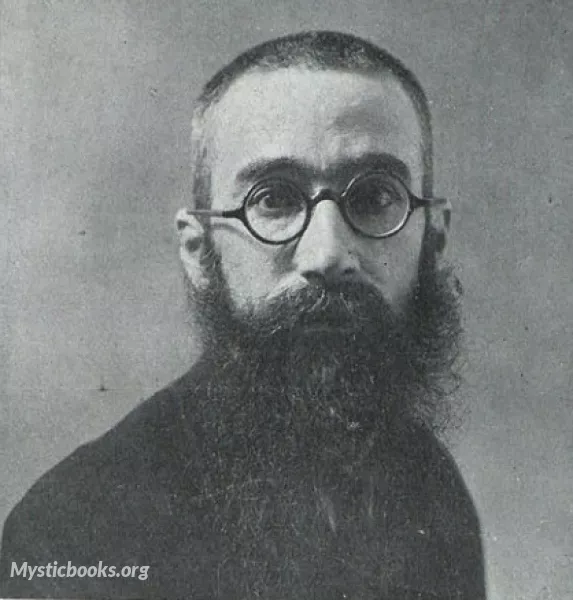
Timeline
Title
Country/Nationality
Ramón del Valle-Inclán
Ramón del Valle-Inclán (1866-1936) was a Spanish novelist, playwright, poet, and essayist. He is best known for his experimental novels and plays, which he wrote in a variety of styles, including modernism, expressionism, and esperpento.
Valle-Inclán was born in Vilanova de Arousa, Galicia, Spain. He studied law at the University of Santiago de Compostela, but he soon abandoned his studies to pursue a career in writing. He moved to Madrid in 1892, where he became a regular contributor to literary journals and newspapers.
Valle-Inclán's early work was influenced by the modernist movement. His first novel, Femeninas (1895), is a collection of short stories about women. His second novel, Sonata de otoño (1902), is a psychological novel about a love triangle.
In the early 20th century, Valle-Inclán began to experiment with new forms of writing. He wrote a series of plays in a style he called esperpento. Esperpento is a satirical style that uses exaggeration, grotesque imagery, and black humor to expose the absurdity of human behavior. Valle-Inclán's most famous esperpento plays include Luces de bohemia (1920) and Divinas palabras (1920).
Valle-Inclán also wrote a number of novels in the esperpento style. His most famous esperpento novel is Tirano Banderas (1926), a satire of a Latin American dictator.
Valle-Inclán's work is characterized by its originality, its stylistic innovation, and its social and political commentary. He was a master of language, and his writing is full of vivid imagery, humor, and irony. He was also a keen observer of human nature, and his characters are often flawed and complex.
Valle-Inclán's philosophy was based on his belief in the power of art to expose the truth about the human condition. He believed that art should be challenging and thought-provoking, and he was not afraid to tackle controversial subjects in his work. He was also a strong believer in the importance of freedom of expression.
Valle-Inclán died in Santiago de Compostela in 1936. He is remembered as one of the most important Spanish writers of the 20th century. His work has been praised by critics and readers alike, and it has been translated into many languages. He is considered a pioneer of the esperpento style, and his work has influenced many other writers.
Here are some of the principles that guided Valle-Inclán's writing:
- Originality: Valle-Inclán was always striving to create new and original forms of art. He was not afraid to experiment with different styles and techniques.
- Stylistic innovation: Valle-Inclán was a master of language, and he used his skills to create beautiful and memorable prose. He was also a pioneer of the esperpento style, which he used to satirize the absurdity of human behavior.
- Social and political commentary: Valle-Inclán was a keen observer of society, and his work often addressed social and political issues. He was a critic of war, injustice, and oppression.
- Psychological realism: Valle-Inclán's characters are often complex and flawed. He was interested in exploring the dark side of human nature.
- Freedom of expression: Valle-Inclán was a strong believer in the importance of freedom of expression. He was not afraid to challenge authority or to express unpopular opinions.
Valle-Inclán's work has had a lasting impact on Spanish literature. He is considered one of the most important Spanish writers of the 20th century. His work has been praised by critics and readers alike, and it has been translated into many languages. He is considered a pioneer of the esperpento style, and his work has influenced many other writers.
Valle-Inclán is remembered as a brilliant and original artist. His work is challenging, thought-provoking, and entertaining. He is a writer who continues to be relevant today
Books by Ramón del Valle-Inclán
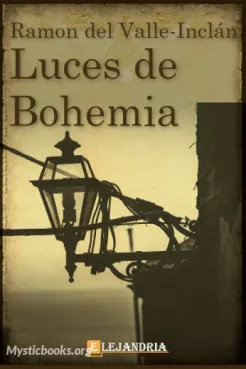
Luces de bohemia
Adéntrate en el turbulento Madrid nocturno con "Luces de Bohemia" de Ramón del Valle-Inclán, una obra maestra de la literatura española. Esta trágica y fascinante historia se desarrolla en el Madrid de principios del siglo XX, una ciudad llena de con...
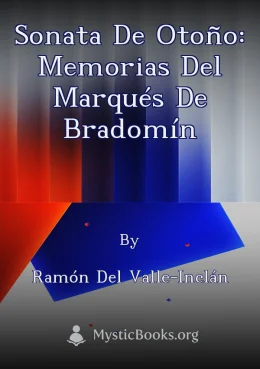
Sonata de otoño: memorias del marqués de Bradomín
Sonata de Otoño is a poignant and introspective novel by Ramón del Valle-Inclán, centering on the Marqués de Bradomín's journey to a Galician pazo where his former love, Concha, lies dying. The narrative unfolds through Bradomín's recollections of th...
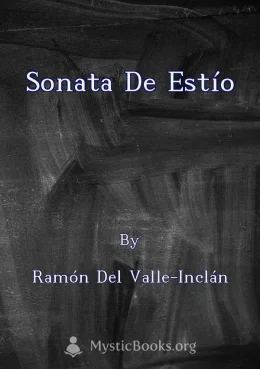
Sonata de estío
Sonata de estío, la segunda de las cuatro sonatas escritas por Valle-Inclán, sigue las aventuras amorosas del Marqués de Bradomín. Esta vez, el Marqués viaja a México, donde se encuentra con una joven llamada Chole. La historia se desarrolla en un am...
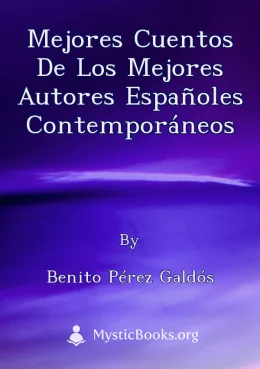
mejores cuentos de los mejores autores españoles contemporáneos
Esta antología reúne una selección de cuentos de autores españoles del siglo XIX, incluyendo nombres como Benito Pérez Galdós, José Echegaray, Emilia Pardo Bazán, Vicente Blasco Ibáñez, Ramón Valle-Inclán, Joaquín Dicenta, y Palacio Valdés. Los cuent...
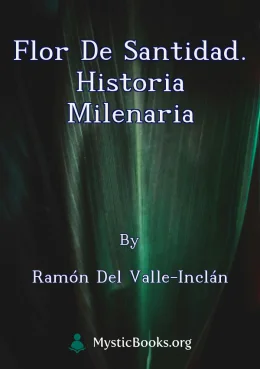
Flor de Santidad. Historia milenaria
Flor de Santidad es una novela corta que narra la historia de Adega, una pastora inocente que cree haber sido seducida por un peregrino a quien identifica como Dios. Esta creencia le lleva a afirmar que está embarazada de Dios, lo que la lleva a ser...
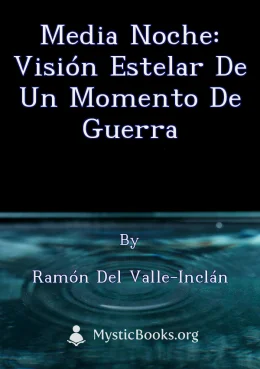
media noche: visión estelar de un momento de guerra
'Media Noche: Visión Estelar de un Momento de Guerra' is a collection of 40 brief chapters by Ramón del Valle-Inclán, each presenting a vignette of World War I from the viewpoint of different individuals and professions. The book is a testament to V...
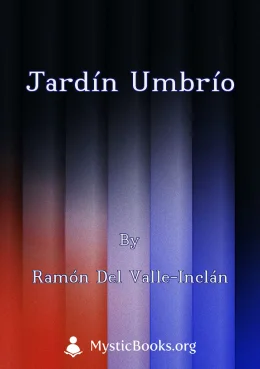
Jardín Umbrío
Set in the misty landscapes of Galicia, "Jardín Umbrío" is a collection of haunting and atmospheric tales that draw heavily on the region's rich folklore and oral tradition. Valle-Inclán's masterful prose captures the essence of these stories, weavin...